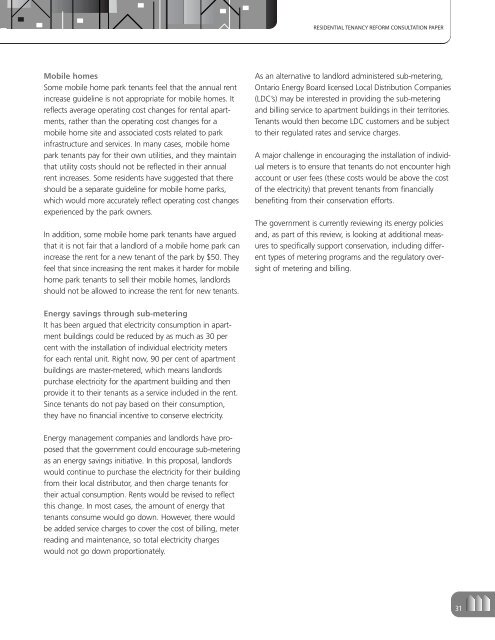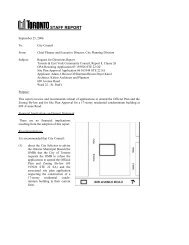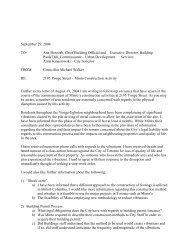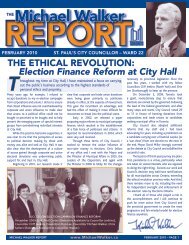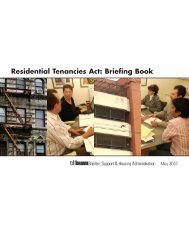Residential Tenancy Reform Consultation Paper
Residential Tenancy Reform Consultation Paper - Michael Walker
Residential Tenancy Reform Consultation Paper - Michael Walker
Create successful ePaper yourself
Turn your PDF publications into a flip-book with our unique Google optimized e-Paper software.
RESIDENTIAL TENANCY REFORM CONSULTATION PAPER<br />
Mobile homes<br />
Some mobile home park tenants feel that the annual rent<br />
increase guideline is not appropriate for mobile homes. It<br />
reflects average operating cost changes for rental apartments,<br />
rather than the operating cost changes for a<br />
mobile home site and associated costs related to park<br />
infrastructure and services. In many cases, mobile home<br />
park tenants pay for their own utilities, and they maintain<br />
that utility costs should not be reflected in their annual<br />
rent increases. Some residents have suggested that there<br />
should be a separate guideline for mobile home parks,<br />
which would more accurately reflect operating cost changes<br />
experienced by the park owners.<br />
In addition, some mobile home park tenants have argued<br />
that it is not fair that a landlord of a mobile home park can<br />
increase the rent for a new tenant of the park by $50. They<br />
feel that since increasing the rent makes it harder for mobile<br />
home park tenants to sell their mobile homes, landlords<br />
should not be allowed to increase the rent for new tenants.<br />
As an alternative to landlord administered sub-metering,<br />
Ontario Energy Board licensed Local Distribution Companies<br />
(LDC’s) may be interested in providing the sub-metering<br />
and billing service to apartment buildings in their territories.<br />
Tenants would then become LDC customers and be subject<br />
to their regulated rates and service charges.<br />
A major challenge in encouraging the installation of individual<br />
meters is to ensure that tenants do not encounter high<br />
account or user fees (these costs would be above the cost<br />
of the electricity) that prevent tenants from financially<br />
benefiting from their conservation efforts.<br />
The government is currently reviewing its energy policies<br />
and, as part of this review, is looking at additional measures<br />
to specifically support conservation, including different<br />
types of metering programs and the regulatory oversight<br />
of metering and billing.<br />
Energy savings through sub-metering<br />
It has been argued that electricity consumption in apartment<br />
buildings could be reduced by as much as 30 per<br />
cent with the installation of individual electricity meters<br />
for each rental unit. Right now, 90 per cent of apartment<br />
buildings are master-metered, which means landlords<br />
purchase electricity for the apartment building and then<br />
provide it to their tenants as a service included in the rent.<br />
Since tenants do not pay based on their consumption,<br />
they have no financial incentive to conserve electricity.<br />
Energy management companies and landlords have proposed<br />
that the government could encourage sub-metering<br />
as an energy savings initiative. In this proposal, landlords<br />
would continue to purchase the electricity for their building<br />
from their local distributor, and then charge tenants for<br />
their actual consumption. Rents would be revised to reflect<br />
this change. In most cases, the amount of energy that<br />
tenants consume would go down. However, there would<br />
be added service charges to cover the cost of billing, meter<br />
reading and maintenance, so total electricity charges<br />
would not go down proportionately.<br />
31


